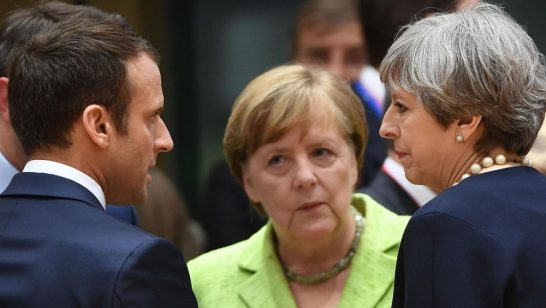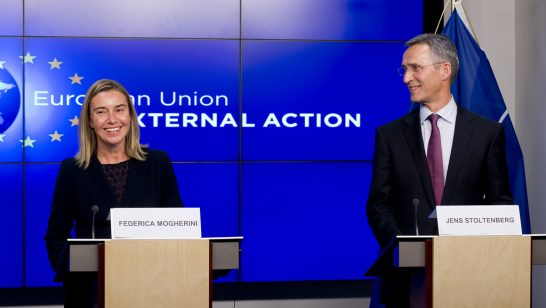
Ahead of NATO’s Brussels summit on 11-12 July, Sir Adam Thomson KCMG, Director of the European Leadership Network and former UK Ambassador to NATO, assesses three challenges to NATO solidarity and what can realistically be done to address these at the summit.
Sir Adam points out that since 2014, the Alliance has responded relatively effectively to Russia’s destabilisation of Ukraine and the new arc of instability to NATO’s south. However, although the Alliance may manage its way through one or more summits (superficially) unscathed, it has to work harder than ever on NATO cohesion and resilience.
The report makes the case that this year’s summit should therefore address three potential divides and risks to NATO solidarity:
- Engagement southwards;
- NATO’s long-term approach to Russia; and
- Transatlantic burdensharing.
Tackling one or more could make a real success of the 2018 Brussels summit and beyond.
In this context, the report’s analysis offers specific, practical recommendations for the 2018 Brussels communique, declaration and Joint EU-NATO Declaration. These cover:
- On the south: A resolution to work harder for institutional and national partnerships in which NATO can play a realistic part in tackling the threats from the South;
- On Russia: A recognition that long-term confrontation with Russia calls for NATO to reduce the risks in current deterrence postures and work for all-weather dialogue;
- On burdensharing: An agreement to work, preferably in conjunction with the EU, towards a roadmap on greater European capacity to meet the defence burden in the coming decades.
Adopting the steps recommended in the report would position the Alliance for a more worthwhile, productive, less inherently defensive declaration at its 70th anniversary celebration in 2019 and the 2020 summit.
The opinions articulated above also do not necessarily reflect the position of the European Leadership Network or any of its members. The ELN’s aim is to encourage debates that will help develop Europe’s capacity to address pressing foreign, defence, and security challenges.



